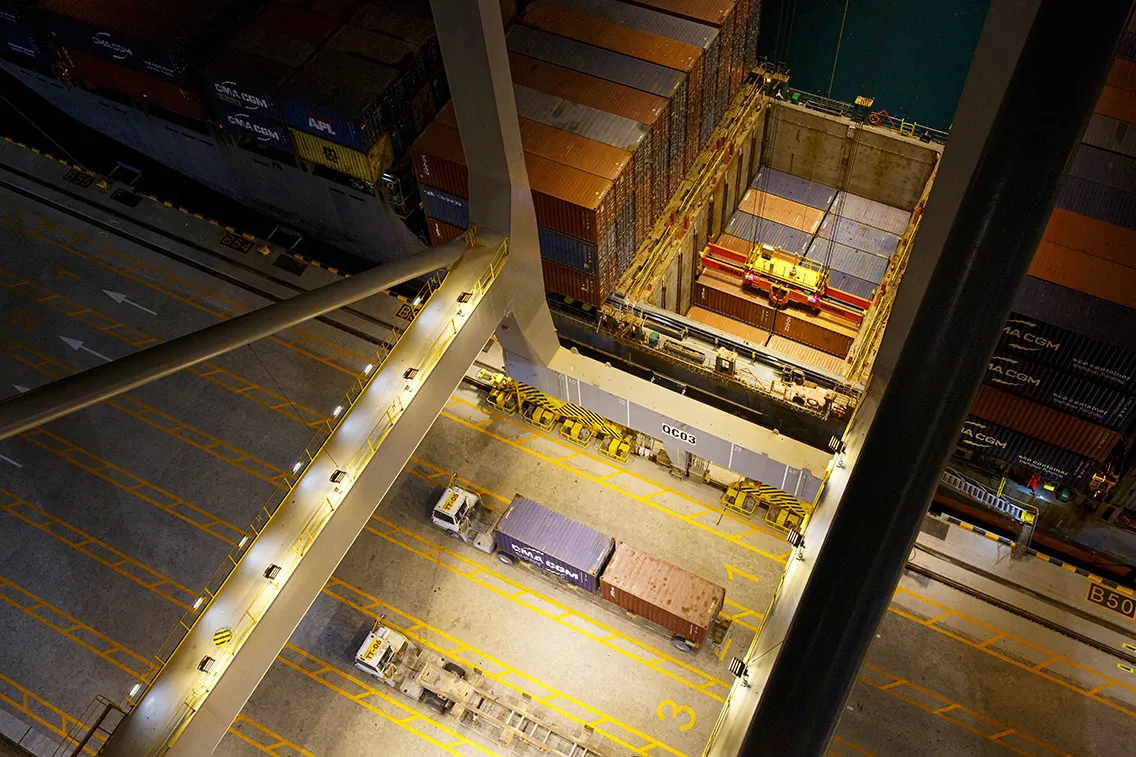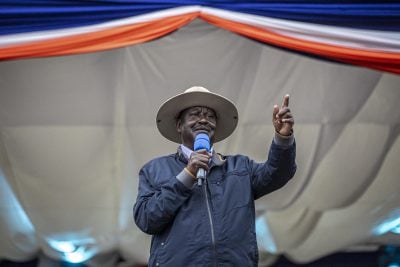This article was produced with the support of Africa Collective
The global stage in 2025 will be defined by shifting power dynamics, economic uncertainty and heightened multipolarity; trends that are likely to intensify fragmentation. For Africa, the combination of high debts, low growth and soaring borrowing costs underscores the urgency of fostering self-sufficiency, building productive capacity, and pursuing reforms in the global financial system.
Against this backdrop, Africa finds itself uniquely positioned to leverage decades of strategic regional consolidation to assert its leadership on the global stage. This moment offers the continent a rare chance to transition from a participant in international dialogue to a principal architect of global economic and geopolitical frameworks.
The African Continental Free Trade Area (AfCFTA) Secretariat, the African Export-Import Bank (Afreximbank) and Africa Collective have embarked on a partnership to organise the Africa Collective Davos Week on the margins of the World Economic Forum 2025, to advance African economic and investment topics there.
Setting the scene: Africa’s historic leadership in 2025
The year 2025 marks a watershed moment for African governance and global leadership. African representation expanded in the BRICS bloc with new members including Egypt and Ethiopia. South Africa assumed the presidency of the G20. With the African Union (AU) now holding a permanent seat in this critical global forum, the opportunity is ripe for African actors to play a central role in the B20 (the business coalition on the sidelines of the G20), amplifying the continent’s strategic priorities in global economic discussions. While these milestones represent landmark opportunities for Africa to shape international policy frameworks, from global financial architecture to climate action, regional consolidation efforts are laying further groundwork for this global influence.
Through Agenda 2063, the AU has provided a long-term vision for transforming Africa into a prosperous, united, and influential continent and a major partner in global affairs. Various pan-African institutions are working towards driving transformative initiatives that consolidate regional efforts and position the continent as a formidable global player.
Africa’s leadership in 2025 is underpinned and exemplified by the work of key pan-African institutions such as Afreximbank, the AfCFTA Secretariat and others throughplatforms for policies, initiatives, projects and events. By launching transformative projects and initiatives, these pan-African institutions are building resilience and driving economic growth.
Efforts facilitating intra-African trade
There are several examples of pan-African institutions driving intra-African trade which are bridging policy and financing. It is worthwhile highlighting a number of these initiatives that are changing the way in which African countries are trading with each other.
The Guided Trade Initiative (GTI) was launched in October 2022 to initiate commercially meaningful trade under the AfCFTA. By April 2023 it had demonstrated practical results by facilitating trade across eight pilot countries, and by the end of October 2024 the number of participating countries had grown to 38 of the 54 state parties to the AfCFTA. Launched by Afreximbank, the $10bn AfCFTA Adjustment Fund assists countries in implementing agreed protocols and transitioning smoothly to the liberalised and integrated trading environment of the AfCFTA, equipping African businesses to adapt for meaningful engagement in the new trade framework and addressing infrastructure gaps as well as supply chain challenges.
The Pan-African Payment and Settlement System (PAPSS) is a groundbreaking collaboration between the AU, Afreximbank, and the AfCFTA Secretariat. PAPSS is essential for enhancing economic integration across Africa by enabling faster and more cost-effective transactions between countries, supporting the AfCFTA’s goals and creating opportunities for businesses to grow across borders.
Event platforms also play an important role in bolstering intra-African trade. Through its annual Business Forum, Biashara Afrika, the AfCFTA Secretariat provides a platform for the African public and private sectors, multinationals, and key stakeholders to engage in robust discussions around the intra-continental trade landscape. At the same time, the Intra-African Trade Fair, hosted by Afreximbank, connects businesses across the continent and stimulates investment. During the week-long fair, more than 2,000 exhibitors, including firms from the African continent and globally, showcase their goods and services to visitors and buyers while exploring opportunities and exchanging information. These activities are projected to translate into over $44bn in trade and investment deals.
Collaborating on infrastructure and industrialisation
Afreximbank’s industrial parks project points to its commitment to fostering local productivity and driving industrialisation on the continent. In partnership with Industrial Platforms (ARISE IIP), a pan-African developer and operator of industrial ecosystems, and the Republic of Malawi, the Bank initiated the construction of the Magwero Industrial Park in Lilongwe, an integrated industrial park set to accelerate the country’s industrialisation.
The Bank has also recently entered into an agreement with Arise IIP and Rieter AG to facilitate the implementation of the Africa Textile Renaissance Plan. By creating hubs for manufacturing and value-added production, these parks reduce dependency on raw material exports and bolster Africa’s role in global supply chains.
Public health
The African Vaccine Acquisition Trust (AVAT) remains a powerful example of coordination between pan-African institutions and the private sector, showcasing Africa’s collective response to public health challenges such as vaccine inequity. Established during the Covid-19 pandemic and spearheaded by the African Union, Africa Centres for Disease Control and Prevention (Africa CDC), and Afreximbank, and in collaboration with other public and private partners, AVAT secured millions of vaccine doses for the continent, demonstrating effective partnerships in mobilising and pooling resources and implementing effective solutions at scale.
These collaborative efforts collectively strengthen the continent’s economic resilience, empower small and medium enterprises (SMEs), and create a conducive environment for private sector growth.
Seizing the global opportunity
Africa’s strategic leadership position on the global stage presents a remarkable opportunity to ensure that the continent’s voice not only resonates in, but actively shapes, international discourse. Realising this potential and making the most of growing influence in 2025 and beyond will require even greater coordination and collaboration between states, governance bodies and the public and private sectors.
This moment offers a consolidated Africa the chance to foster strategic partnerships with global players and bring African solutions into global systems. It also allows the continent to lead on critical global issues such as climate change, energy transition and global health. With vast renewable energy potential, Africa is uniquely positioned to contribute to the worldwide shift towards sustainability.
While the opportunities are immense, the continent must address certain hurdles to take advantage of its rising prominence on the global stage. These include further aligning regional and national policies to create a seamless environment for trade and investment, prioritising transport, energy and digital infrastructure to support industrialisation and connectivity, and equipping Africa’s predominantly youthful workforce with the skills needed to thrive in a global economy.
Africa stands at a pivotal moment of global recalibration, poised to redefine its role from a continent of potential to a driver of international economic and political discourse. While much is yet to be achieved, it is clear that the continent is no longer waiting for opportunities – it is creating them. n
From 20 to 24 January 2025, visit the dedicated Africa Collective networking area in the lobby of the Hard Rock Hotel, Davos.
For more information visit: www.africacollective.com/davos2025

 Sign in with Google
Sign in with Google 



